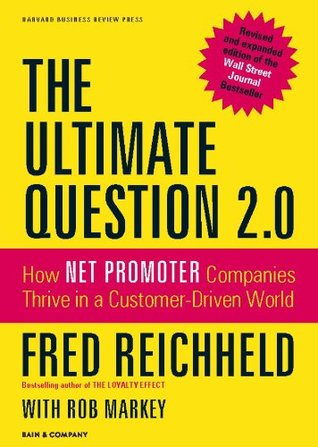More on this book
Community
Kindle Notes & Highlights
Promoters. People who respond with a nine or a ten are signaling that their lives have been enriched by their relationship with the company. They behave like loyal customers, typically making repeat purchases
Passives. People who give the company a seven or an eight got what they paid for, nothing more. They are passively satisfied customers, not loyal ones, and they exhibit a markedly different set of attitudes and behaviors.
Detractors. And then there are the people who give a rating of six or below. Their score indicates that their lives have been diminished by their dealings with the company. They are not a happy crew.
That phrasing was a shorthand wording of a more basic question, which is, Have we treated you right, in a manner that is worthy of your loyalty?
Upton Sinclair dictum: it is difficult to get a man to understand something when his salary depends upon his not understanding it.
Many companies also want to make themselves more mission driven than profit driven. Again, no surprise. Their leaders understand that they can’t win and keep customers without first winning and keeping the best possible employees. And most talented employees want to pursue a mission, a purpose that transcends profits for shareholders.
The pursuit of bad profits alienates customers and demoralizes employees. Bad profits also make a business vulnerable to competitors.
While bad profits don’t show up on the books, they are easy to recognize. They’re profits earned at the expense of customer relationships.
A company earns good profits when it so delights its customers that they willingly come back for more—and not only that, they tell their friends and colleagues to do business with the company. Satisfied customers become, in effect, part of the company’s marketing department, not only increasing their own purchases but also providing enthusiastic referrals.
This way of thinking also demonstrates a deep respect for the power of word of mouth in today’s economy.
This approach to customers boils down to a simple precept: treat them the way you would like to be treated.
“The only way to grow is to treat customers so well they come back for more, and tell their friends about us.
“Golden Rule behavior is the basis for loyalty. And loyalty is the key to profitable growth.”
Employees treat customers the way they would want to be treated if they were customers. That means avoiding bad profits entirely.
employees are held accountable for increasing profits.


